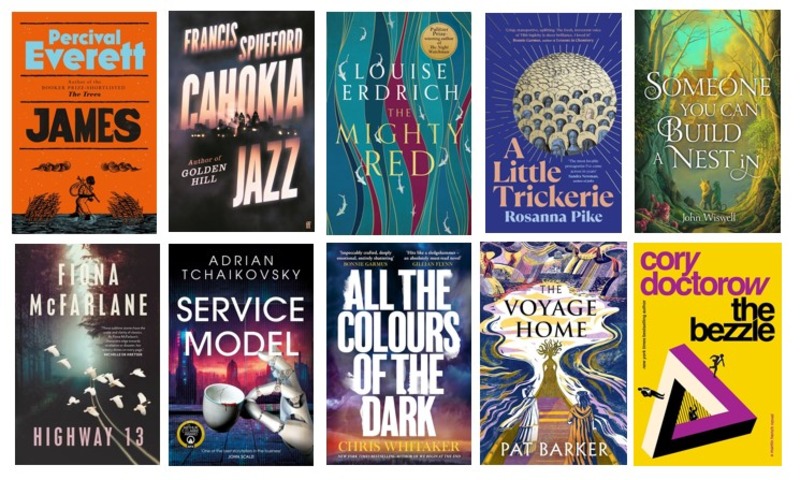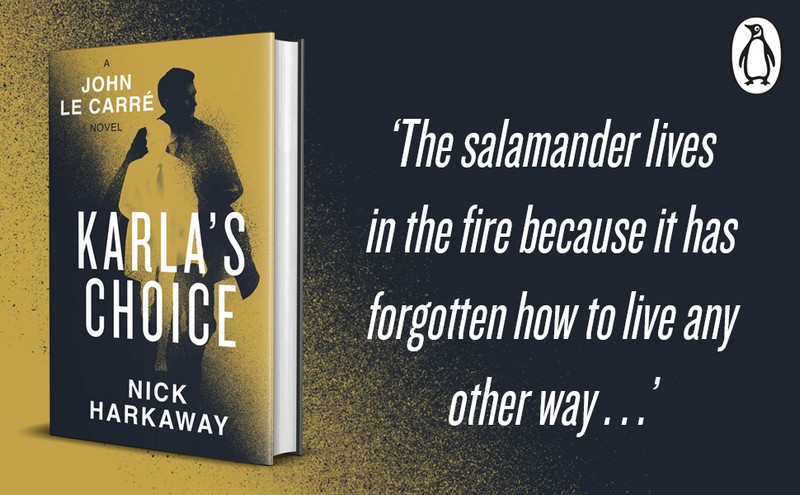 Speculative fiction often lives and dies by its premise. So long as the author can sell the premise and hold it together, speculative fiction has the capacity to open minds and deeply explore issues. Guy Morpuss’s debut novel Five Minds has what can only be described as a double speculative premise. On top of this he introduces five main characters and embeds them in a murder mystery. This all creates a narrative that then has to be too full of exposition and plot to be truly engaging.
Speculative fiction often lives and dies by its premise. So long as the author can sell the premise and hold it together, speculative fiction has the capacity to open minds and deeply explore issues. Guy Morpuss’s debut novel Five Minds has what can only be described as a double speculative premise. On top of this he introduces five main characters and embeds them in a murder mystery. This all creates a narrative that then has to be too full of exposition and plot to be truly engaging.
Five Minds opens with Alex. Alex is one of five personalities sharing a single body. Each of the five personalities gets four hours per day to use the body with the sixth portion of four hours used for sleep and maintenance. Alex has the misfortune to follow Sierra, the hard drinking hard partying member of the group. Later in the novel it is explained why these communal minds came about and the other (restricted) options for life that seventeen-year-olds have in a resource constrained world. Each of these options come with a different, prescribed lifetime. Later in the book readers meet the other members of Alex’s body, one of whom is “killed” (erased?) early on.
Layered on this idea is the second premise of the novel. Alex and his partners have come to a “death park” – this is a facility that allows people to gamble with their allotted time. They do this by participating in games to the death. The winner of the game is given the loser’s remaining time and the loser dies. These games are high concept simulations – three-dimensional, participatory video games of different styles – problem solving, ethical conundrums, feats of strength and action adventure. It is an offer to Kate, one of the five, early on, to play a game in which she will earn 20 years for her crew, that sets the plot off.
Following all of this set up is the story of how the five (soon four), personalities try and work out what is going on when they cannot speak to each other. They leave each other messages and hope that each personality can progress their investigation a little further (while suspecting that possibly one of them may be the murderer). Meanwhile, because they remain in the death park, they are required to choose games to play or they will be allocated them randomly.
While the concept and world are completely unbelievable, the set up is enticing. The problem though that with so much set up and action it is impossible to really care about any of the characters (either as individuals or as a collective) or what happens to them. On top of that, the flow of the story keeps being broken up by the “games” that the characters have to play which feel like rehashed video games, or in one case, a literal play through of the trolley problem only involving a sinking submarine.
Five Minds is at least timely – game playing is huge at the moment as a driver for both character and action. But there are just too many characters, most of them unlikeable, to make this work effectively and the games themselves are not that innovative. And so while on the surface this may appeal to those looking for something to fill that post-Squid Game hole in their schedule, it is unlikely to satisfy that itch.
Robert Goodman
For more of Robert’s reviews, visit his blog Pile By the Bed
Other reviews you might enjoy:
- The Wonder State (Sarah Flannery Murphy) – book review
- A Stranger in the Citadel (Tobias S Buckell) – book review
- The Colours of Death (Patricia Marques) – book review

Robert Goodman is a book reviewer, former Ned Kelly Awards judge and institutionalised public servant based in Sydney. This and over 450 more book reviews can be found on his website Pile By the Bed.



